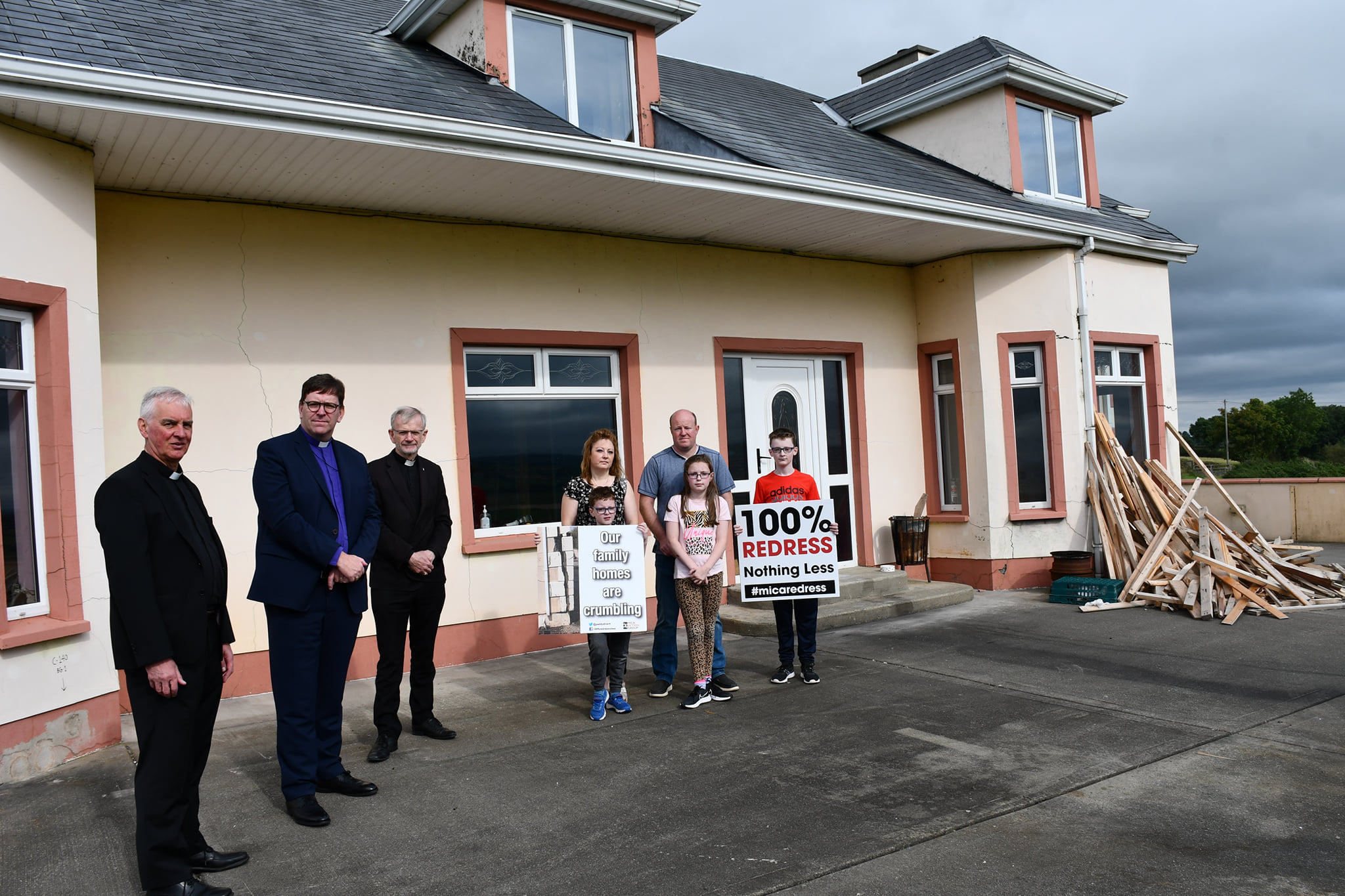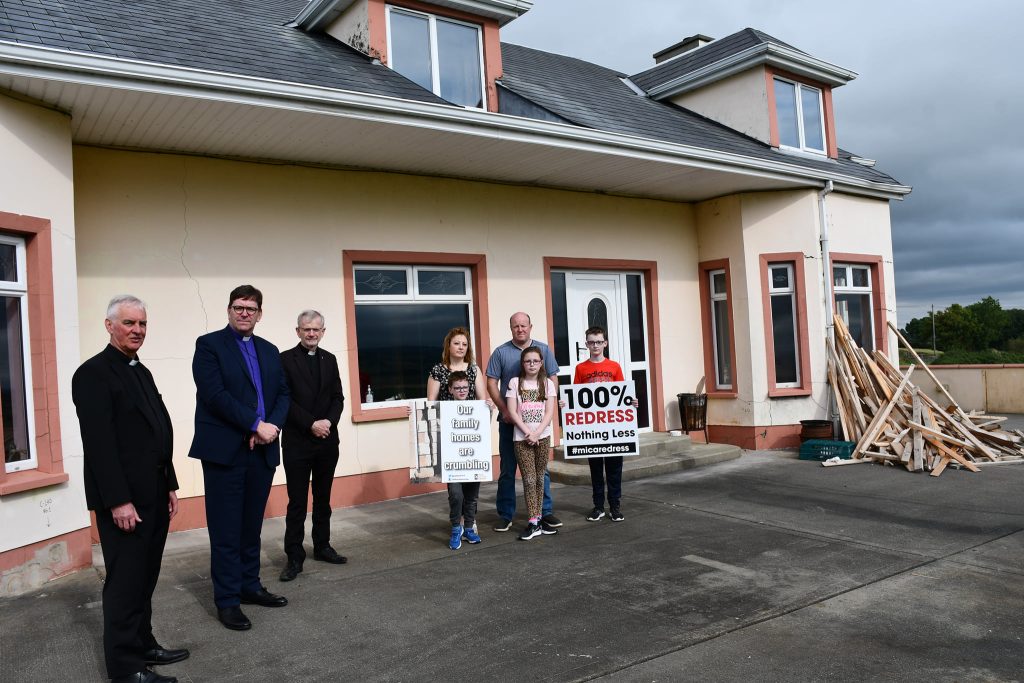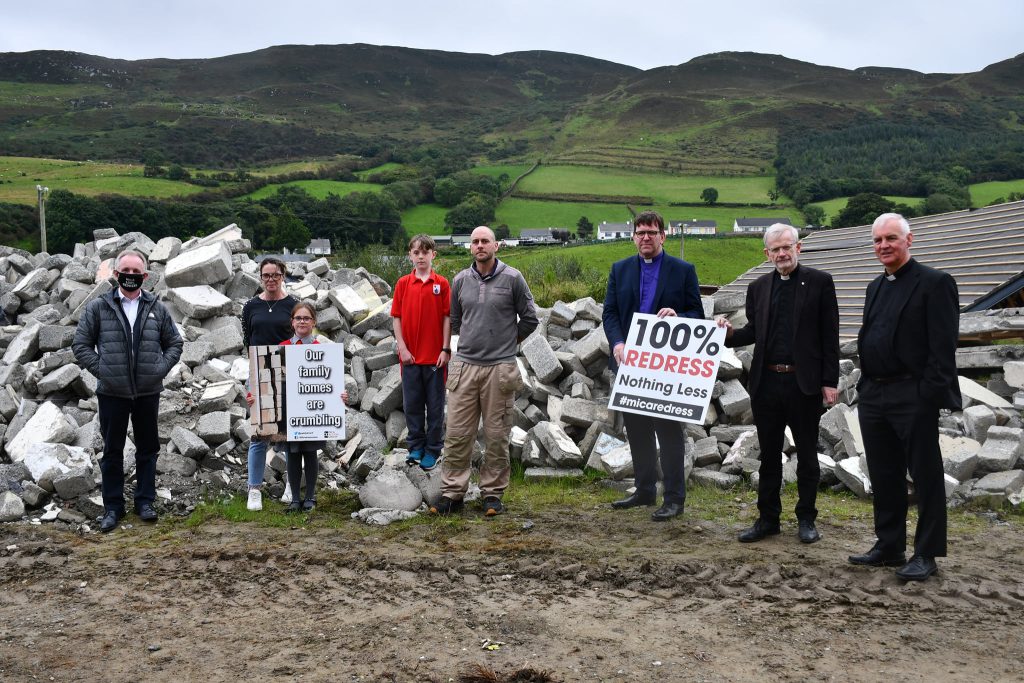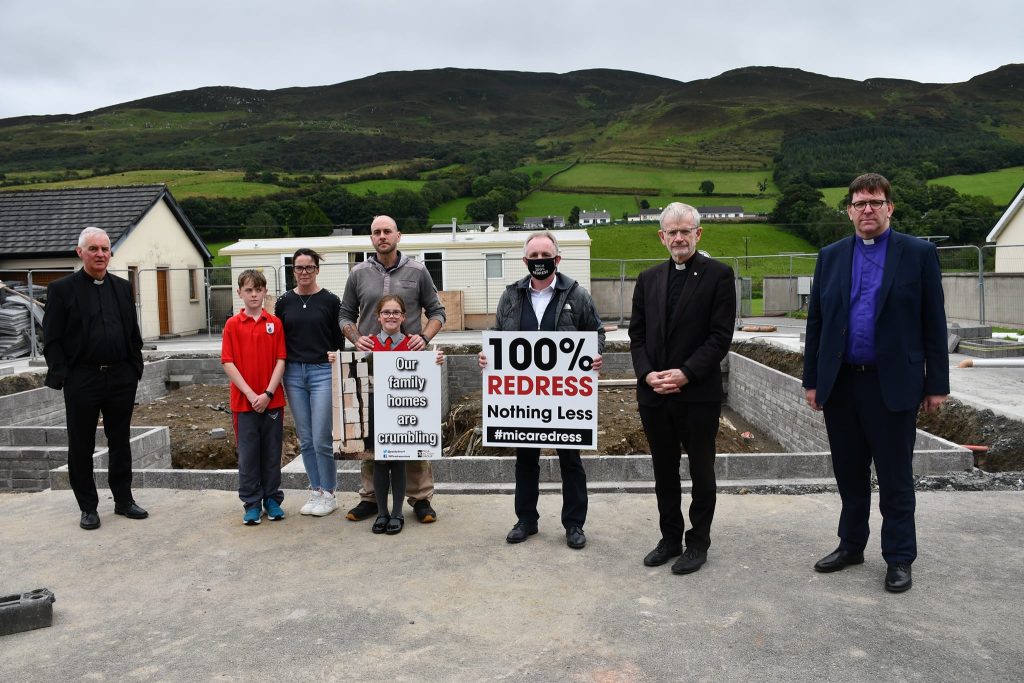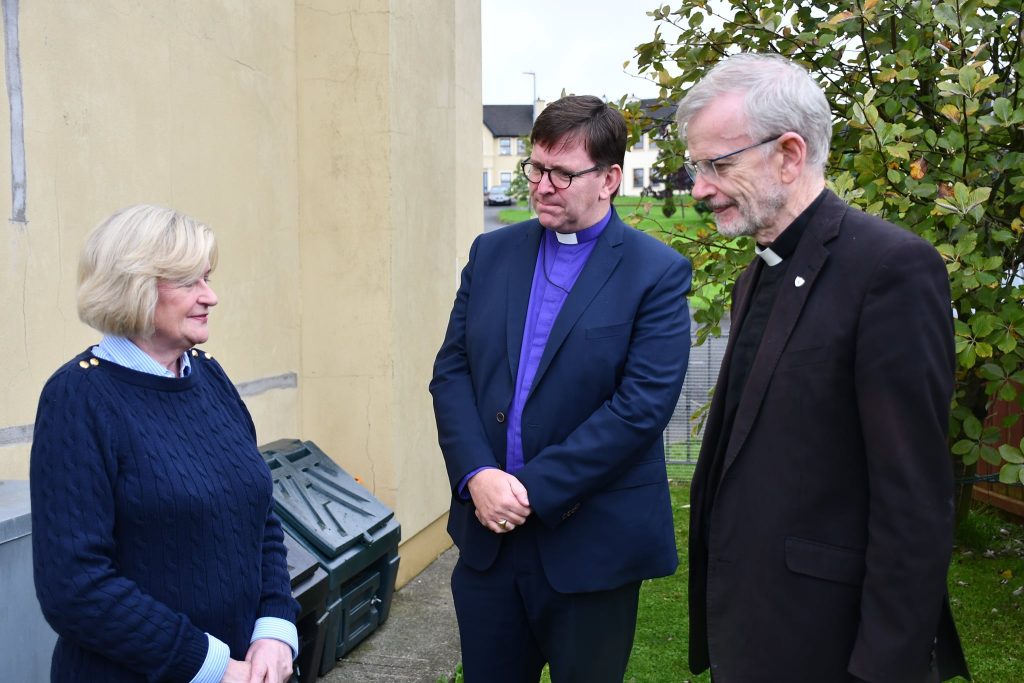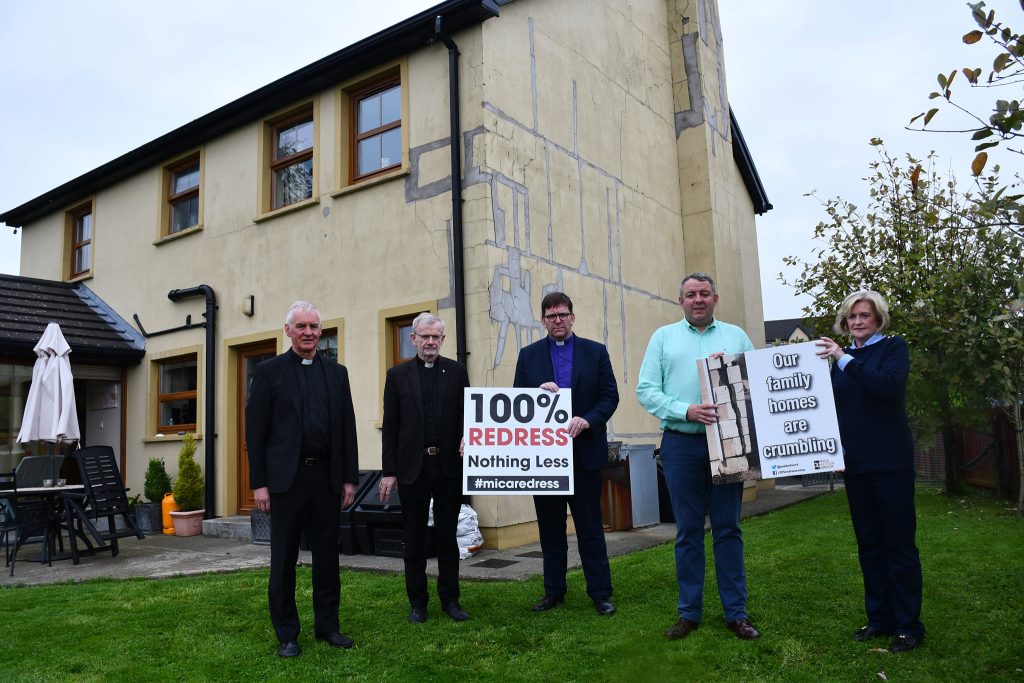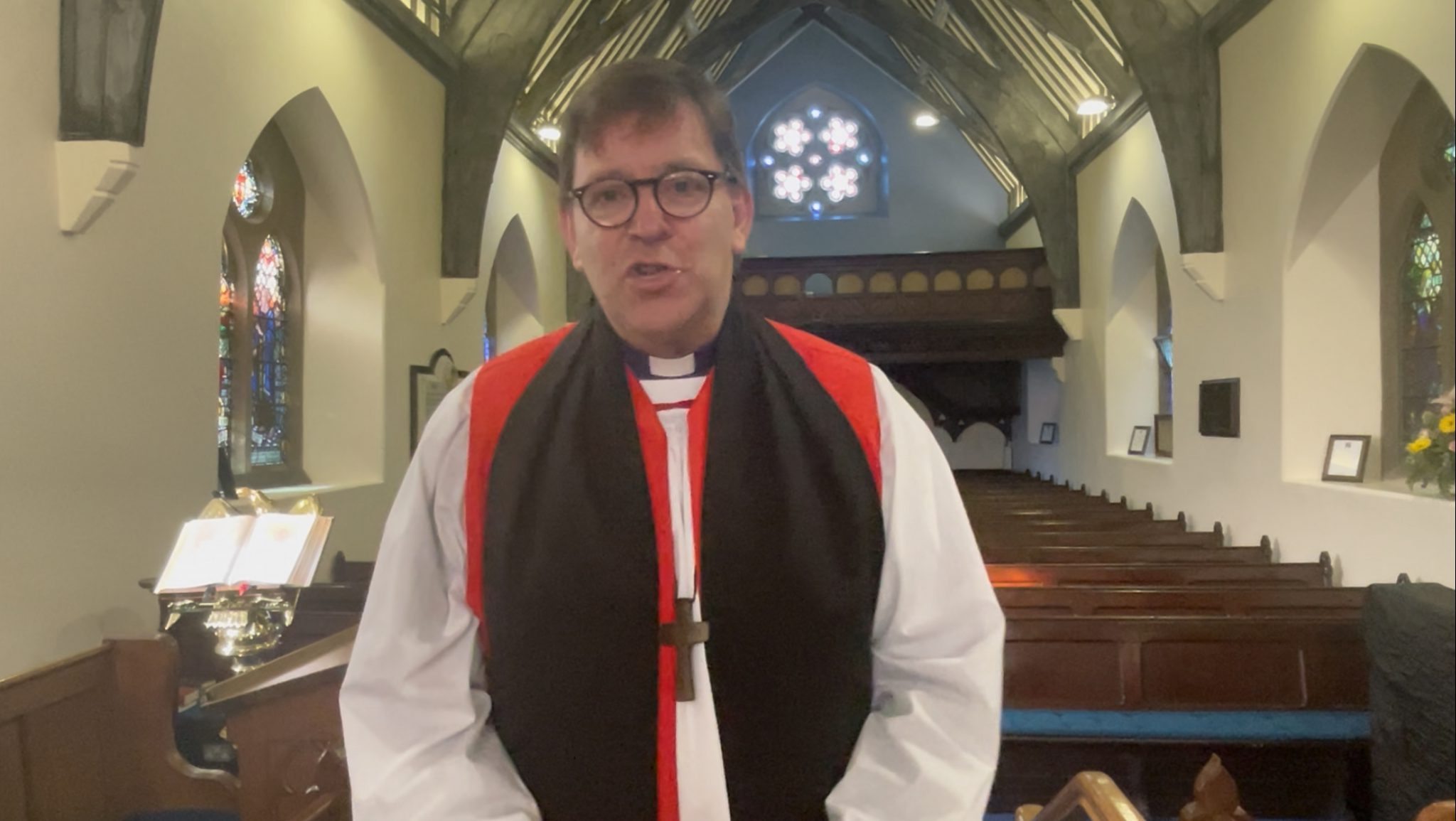
The Bishop of Derry and Raphoe, Rt Rev Andrew Forster, has urged delegates at the Church of Ireland General Synod – and parishioners all across the Church of Ireland – to become missionary pioneers like St Columba, and take a message of peace to a fractured, fragile world.
Bishop Andrew was the preacher at the Service on the opening day of Synod. As was the case last year, the General Synod is meeting online because of COVID-19 restrictions, and Bishop Andrew’s sermon was delivered from St Augustine’s Church in Londonderry, which is built on the site of Saint Columba’s first monastery in the city.
This year, people have been celebrating the 1,500th anniversary of Columba’s birth and the saint’s missionary example was a recurring theme in Bishop Andrew’s address. In it, he said each one of us had a role to play in mission, “with prayer as our fuel, with a message of peace in a challenging world”.
Full text of Bishop Andrew’s sermon”
“Much as all of us would have loved to have been gathered today in St. Patrick’s cathedral in Armagh, I’m delighted to be able to share with you from St. Augustine’s Church, which sits on Derry’s walls right in the heart of our city.
“Known locally as the ‘Wee Church on the Walls’, its modest size belies its huge significance in the Christian heritage of these islands. It was here that St. Columba built his first, and what was reputed to be his favourite, abbey and this church sits on the footprint of the original. From here Columba’s network of monasteries spread out across Ireland and eventually beyond, as centres of mission sharing the good news of Jesus Christ. This year we celebrate the 1,500th anniversary of Columba’s birth in Gartan in Donegal. Our celebrations have been more muted than we would have hoped for, but particularly in the North-West we celebrate both his example and his legacy.
“From the vantage point of this monastery, Columba would have looked out at a very different view than today. At that stage the hill of Derry was more or less an island, and he would have looked out over the oak forests that gave the city its name. The view was different, but Columba looked out at a people who knew the hardship and uncertainty of life. Disease and illness brought to them both physical weakness and fear. The tribal divisions were the sectarianism of the day that drove both conflict and division. It was a fragile and fractured world, and it was into that environment that Columba became a pioneering missionary with a confidence in the good news that he shared.
“I think the parallel is a clear one – we all know the fragility of living through this pandemic. And, unfortunately, the continued fracturing of our society, whether on sectarian, racial or economic lines is all too real. As we seek to play our part in rebuilding church, and indeed society, I believe Columba’s example can inspire and help us. Of course, all of us lament; we lament what we have lost, and we lament who we have lost. Of course, all of us are concerned. What will we be able to build back? What is left to build back? Will our young families appear again? Will the vulnerable feel safe meeting together? All of us have our concerns. And I’m sure the followers of Jesus did, as our gospel recalls, when he sends them out, the seventy-two, two by two. They would have had their concerns and their worries about what the next chapter held for them.
“Now it’s interesting to note that this passage from Luke’s gospel speaks of a larger group sent out on mission. It wasn’t just the twelve. I think it’s clear the task of rebuilding and renewing is not just for some of us, but for all of us. I’m sure you know the example of the Church being likened to a football match i.e. twenty-two people desperately needing a rest, watched by hundreds of people desperately needing some exercise. Jesus says the harvest is plentiful, but the workers are few. He still sends us out into a fragile, fractured world with good news, shown both by our words and in our deeds.
“Jesus also tells us what the fuel for his mission is, the fuel to keep going and to thrive no matter what the challenges are. ‘Ask’, he says. ‘Ask the Lord of the harvest’, or as other translations put it, ‘pray therefore to the Lord of the harvest’. The fuel for our mission, indeed, the fuel for our lives, the fuel for our rebuilding, recovery, renewal, has to be prayer. Throughout the pandemic I’ve been saying to people, pray like you’ve never prayed before.
“I’m convinced that every prayer matters, every prayer counts, and we need to keep praying. Because the reality of the challenges that face us are great. They were great for the seventy- two as well. Jesus says to them, “Go, I am sending you out like lambs amongst wolves”, which sounds pretty ominous, doesn’t it? Yet, the message we are compelled to share is vital for our fragile, fractured society. ‘When you enter a home’, says Jesus, ‘say peace be to this house’. The message of peace is a message of God’s peace in our lies, a message of God’s pardon for us, and a message of God’s purpose for today and for our future. We are called to be both messengers and vessels of God’s peace. Through our words, through our actions, through our very lives. To carry and share the peace of God that Jesus tells us some will welcome and sadly some will reject.
“I always think our parish structure gives us a great advantage; it’s almost Columban if we see our parishes as mission stations throughout our island to our fragile, fractured world. Each one of us has a role to play with prayer as our fuel, with a message of peace in a challenging world.
“In the Old Testament reading today from Nehemiah, after Ezra reads the book of the law to the people, there’s almost a feeling for them of being totally overwhelmed. They’re overwhelmed both by the task and the sense of responsibility. Nehemiah shares these words that speak to us in times that often seem overwhelming in this fragile, fractured world. He says, ‘This day is sacred to the Lord. Do not grieve, for the joy of the Lord is our strength’.
“May the joy of the Lord be your strength, may the joy of the Lord be our strength. Amen.”
